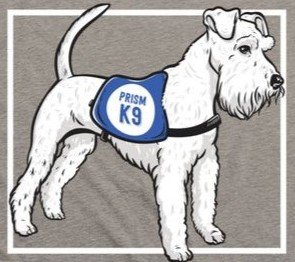Understanding the Role of Therapy Dogs: Comfort and Support
Therapy dogs, often referred to as play a remarkable role in providing comfort, support, and emotional healing to individuals in various settings. These specially trained dogs offer companionship and a soothing presence, significantly contributing to the well-being of those they interact with. In this guide, we will explore what therapy dogs are, their roles, benefits, and how you can get involved with therapy dog programs.
What Are Therapy Dogs?
Therapy dogs are trained and canines that are carefully selected for their friendly and calm temperament. Unlike service dogs, which are trained to perform specific tasks for individuals with disabilities, therapy dogs are chosen for their sociable nature and are trained to provide a type of emotional support to a wide range of people.
Roles of Therapy Dogs
Therapy dogs are versatile in their roles and can be found in various settings, including:
Hospitals: Therapy dogs visit patients to provide comfort, reduce anxiety, and promote healing. The presence of a friendly dog can boost the morale of patients and hospital staff alike.
Nursing Homes: Elderly residents often find solace and joy in the companionship of therapy dogs. These visits can reduce feelings of loneliness and depression.
Schools and Universities: Therapy dogs help students manage stress, anxiety, and homesickness. They are often present during exam weeks or at libraries to offer emotional support.
Disaster Relief: After natural disasters or traumatic events, therapy dogs are deployed to provide emotional support to survivors, first responders, and rescue workers.
Airports and Travel Settings: Some airports employ therapy dogs to create a calming environment for travelers. Passengers can interact with these dogs to reduce travel-related stress.
Courthouses and Legal Settings: Therapy dogs are increasingly being used in courtrooms to provide comfort and support to witnesses, especially in cases involving children or trauma.
Benefits of Therapy Dogs
The presence of therapy dogs offers numerous benefits to individuals, including:
Emotional Support: Interacting with therapy dogs can reduce stress, anxiety, and feelings of loneliness.
Physical Benefits: Petting a dog can lower blood pressure and release endorphins, which help improve mood.
Enhanced Communication: Therapy dogs can help individuals open up and communicate more easily with others, including therapists and medical professionals.
Improved Focus: In educational settings, therapy dogs can help students concentrate better and alleviate test anxiety.
Getting Involved with Therapy Dog Programs
If you're interested in becoming part of the therapy dog community, here are some steps to consider:
Choose the RIGHT DOG: Not all dogs are suited to be therapy dogs. Look for a dog with a calm, friendly, and adaptable temperament. Purchase your dog from a breeder who socializes the puppies from an early age.
Socialization: Getting your puppy out into the world for happy experiences from a very early age is the absolute most important factor in making a great Therapy Dog.
Training: Optionally, enroll your dog in a therapy dog training program. These programs teach obedience, socialization, and appropriate behavior in various settings.
Certification: Once your dog is trained, you can seek certification through our organization, or through the organization of your chosen venue.
Volunteer: Contact local hospitals, nursing homes, schools, or organizations to volunteer your dog's services. Be prepared for background checks and evaluations. Some places may require certification through a specific organization.
Conclusion
Therapy dogs play an invaluable role in promoting emotional well-being and providing comfort to people in need. Their gentle and compassionate nature has a profound impact on the lives of those they interact with. If you have a loving and well-behaved canine companion, consider exploring our therapy dog programs and share the joy and healing power of your furry friend with those who could benefit from their presence.


